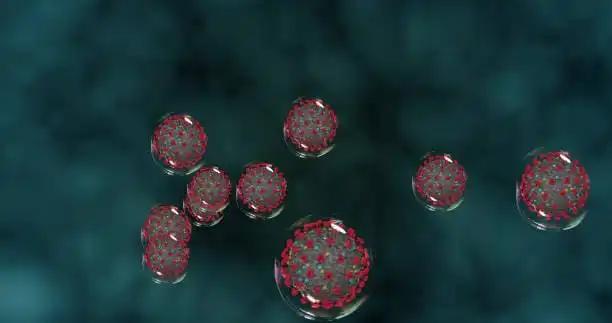KEY TAKEAWAYS
- The phase 3 randomized, open-label TRYbeCA-1 trial investigated the efficacy and safety of eryaspase, an investigational asparaginase product, combined with chemotherapy versus chemotherapy alone in patients with advanced pancreatic adenocarcinoma.
- The primary aim of this trial was to evaluate the OS benefit of eryaspase in combination with chemotherapy compared to chemotherapy alone in patients with advanced pancreatic adenocarcinoma.
- Gemcitabine/nab-paclitaxel or irinotecan/fluorouracil (5FU) with or without eryaspase were given randomly to patients in a 1:1 ratio.
- The study did not meet its primary endpoint of improving OS in patients treated with eryaspase plus chemotherapy.
Eryaspase is a developing investigational product that encapsulates asparaginase in red blood cells. Asparaginase, when encapsulated, targets and breaks down asparagine and glutamine, which are essential for the growth and survival of cancer cells. A Phase 2b study of eryaspase with chemotherapy in advanced pancreatic cancer patients resulted in improved overall survival (OS) and progression-free survival (PFS).
In the TRYbeCA-1 Phase 3 trial, eryaspase combined with chemotherapy was investigated in patients with advanced adenocarcinoma of the pancreas, which had progressed on only one prior line of systemic anti-cancer therapy. Gemcitabine/nab-paclitaxel or irinotecan/fluorouracil (5FU) therapy, with or without eryaspase, was randomly assigned to patients in a 1:1 ratio. Each four-week cycle started on Day 1 and ended on Day 15 with the intravenous administration of eryaspase. ECOG performance level 0 or 1, stage III–IV disease, documented disease progression, the presence of tumor tissue, and proper organ function were required for eligibility. Overall, survival served as the trial’s primary outcome. To identify a hazard ratio (HR) of 0.725 for the treatment effect.
The study enrolled 512 patients with well-balanced baseline characteristics between the treatment arms. However, the study did not meet its primary endpoint of improving overall survival (OS) [HR: 0.92 (95% CI, 0.76-1.11), p-value 0.375]. In comparison to 6.7 months (95% CI, 5.4-7.5) for chemotherapy alone, the median overall survival (OS) for patients receiving eryaspase plus chemotherapy was 7.5 months (95% CI, 6.5-8.3). Nonetheless, there was a trend of nominal OS benefit (107 patients) in the eryaspase and irinotecan-5FU subgroup, with a median OS of 8.0 months versus 5.7 months in the control subgroup [HR: 0.81 (95% CI: 0.60- 1.09)]. This treatment effect was consistent across various prognosis factors. In the eryaspase and control groups, the median progression-free survival (PFS) was 3.7 months as opposed to 3.5 months [HR: 0.89 (95% CI: 0.73-1.07), p-value 0.215]. Additionally, the disease control rate was more significant in the eryaspase arm compared to the control arm (57.6% vs. 49.0%, p-value 0.047). Asthenia, diarrhea, and anemia were the most frequent side effects in the eryaspase arm (Grade 3–4: 16.9%, 7.66%, and 17.3%, respectively). Chemotherapy’s toxicity did not appear to be made worse by eryaspase.
The main objective of this sizable prospective trial, which was to increase overall survival in patients receiving eryaspase, still needs to be achieved. The addition of eryaspase, however, demonstrated a well-tolerated profile and a positive survival advantage in the irinotecan/5FU sample, indicating the need for additional research.
Source: https://meetings.asco.org/abstracts-presentations/204877
Clinical Trial: https://clinicaltrials.gov/ct2/show/NCT03665441/
Hammel P, Hariry I, Macarulla T, Carbonero R, Metges J, Bouché O, Portales F, Cid R, Mineur L, Gracian A, Trouilloud I, Guimbaud R, Tougeron D, Zoilo J, Feliu J, Sauri T, Fountzilas C, Kay R, Youssoufian H, Hidalgo M.Trybeca-1: A randomized, phase 3 study of eryaspase in combination with chemotherapy versus chemotherapy alone as second-line treatment in patients with advanced pancreatic adenocarcinoma (NCT03665441). DOI: 10.1200/JCO.2022.40.4_suppl.518



